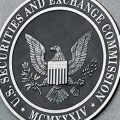Over the past six months, the world community, interested in the unhindered development of crypto-revolutionarytechnology was surprised to see how the projectthe Durov brothers TON (Gram) manages to maneuver between the raindrops while the poor fellow Zuckerberg hopelessly chokes in the tropical rain that the US and EU authorities organized for the pseudo-cryptocurrency Libra.
On October 11, 2019, it finally happened: The American Securities and Exchange Commission (SEC) filed a lawsuit against two offshore companies Telegram Inc. and Ton Issuer Inc. and urgently secured an injunction on the distribution of Gram tokens among investors involved in the pre-sale.
This happened exactly four days before the event,which people who invested $1 billion 700 million in the Telegram Open Network project have been waiting for more than a year and a half. Taking into account the official motivation of the SEC - concern for investors - the demarche looks exquisitely Jesuitical.
There are so many professional financial nuances and libertarian emotions intertwined in the injunction that the mainstream media is simply confused and does not know how to react to the blow dealt by the SEC.
Let's try to figure it out.
Let's start with the precedent, because it’s justdid not have. TON (Gram) is far from the first crypto project to fall under the rink of American justice and financial activity control authorities. In the early summer of 2019, in a similar official press release posted on the portal of the Securities and Exchange Commission, the lawsuit was filed against the Canadian company Kik Interactive Inc., which carried out in early 2017 “illegal placement of digital tokens in the amount of 100 million dollars. "
The main outline of the SEC charges against Kik wasthe same as against TON (Gram): “Selling tokens to American investors without first registering their offer, as required by US securities law.”
In parallel with Kik, US authorities were fighting Block.one, the company behind one of the largest blockchain platforms for developing decentralized EOS applications.
You can’t also say that all these blows withSEC parties came as a surprise to the crypto industry. For three years now, the Securities and Exchange Commission has been conducting focused work to bring cryptocurrency emissions into line with US financial law. So, almost all claims made against TON (Gram) were theorized by SEC more than a year ago in a document revealing the official attitude of the authorities to issues presented in the form of SAFT (Simple Agreement for Future Tokens, a simplified agreement on futures tokens).
If in a lawsuit filed by the SEC againstThe companies responsible for launching TON (Gram), there is no precedent why the reaction of the global crypto community turned out to be so painful? Why did TON lawyers say that the SEC decision “surprised and disappointed” them? Is anything else expected?
To understand the true meaning of events, we need to take a brief excursion into the history of crypto emissions.
First few years release all newthe crypto coin was executed in full agreement with the anarchist freemen and the spirit of the cipher bank movement. The development team created a new blockchain and a token serving it, and then offered this token to everyone. Someone got a cryptocurrency completely free as a result of the so-called. airdrop of advertising and marketing distribution after the blockchain was launched. Someone bought tokens at the development stage at a price significantly lower than planned after the official launch of the project.
The last option is called ICO (InitialCoin Offering), the initial offering of coins, and served as the main source of financing for the development of the project. The process took place spontaneously, without any regulation, as well as without any obligations of token issuers to their customers.
The problem with the ICO was that the directPre-sale of cryptocurrencies in the ICO process fully fell under the criteria of “security” in the form described in US law.
This criterion is the so-called. The Howey Test - was formulated in 1946 as a result of a Supreme Court ruling in the SEC v. W.J. Howey Co ”and includes four attributes:
- money is invested in order to increase them, that is, invested;
- money is transferred to a project in which income and losses are distributed proportionally (the so-called common enterprise);
- the project is expected to be profitable (i.e., it is not charitable);
- the source of profit is not the investor, but third parties.
By all criteria, the ICO passed the Howie test andtherefore, it fell under American financial regulation. In order for the crypto industry not to be tempted to finance its ICOs not with fiat currencies, but with crypto money, in 2017, the SEC equated the latter with fiat.
Now, probably, one important point needs to be clarified.circumstance: no one in the crypto industry in a terrible dream wants to quarrel with the American authorities. Not only because American investors traditionally bring from 30% to 80% of all investments in all crypto projects, but also because it is not difficult for the American authorities to almost completely shut off oxygen to any insurgent.
It’s not even that the rest of the statejurisdictions in the world prefer to build their policies in accordance with the American "partners", and that Apple and Google are American companies! And Apple and Google have two stores — iTunes and Google Store, which sell all applications for mobile platforms. And without exception, crypto projects in the literal sense of the word are vitally dependent on mobile solutions, therefore, if
at the request of an American court, Apple and Google will remove your applications from stores, you can safely put an end to your blockchain, and on your coin, and on chances for financing.
In short, everything is with American Themisprefer to be friends. For this reason, in the fall of 2017, the crypto community created a compromise type of agreement, according to which it is recommended to issue new coins - the simplified futures token agreement (SAFT) already mentioned above.
The meaning of SAFT is that the initial supply of coins is recognized as an issuesecurity tokens, that is, tokens that have characteristics of valuablesecurities, and for this reason they are required to comply with US financial laws. However, after the blockchain is launched and decentralized contracts or some other services begin to function on it, security-tokens turn intoutility-tokens, tokens that perform a specific operational task, and like any commodity, they are no longer subject to US financial law.
In order to comply with the law,security-tokens at the stage of pre-sale at a discount (the so-called direct presale) must undergo a complex, costly and lengthy procedure provided for by the SEC, similar to that of all companies that list their securities on the stock exchange during the IPO (Initial Public Offering) , public offer of shares), namely: it is necessary to conduct and publish the results of an external audit, print and distribute the prospectus with a description of the goals and objectives of the project, conduct a feasibility study, open an accounting department, and also incur significant legal costs some clearance and registration issues in state agencies.
Of course, no one in the crypto industry, whichoriginally created as an alternative to the existing order, was not going to deal with all these nonsense. Therefore, a trick was invented: the issue of coins organized under the SAFT agreement, although officially registered in the USA, was carried out according to one of the special provisions, which made it possible to simplify the procedure to the utmost.
It's about the so-called. exception 506 © of the RegD clause, which allows issuing securities without control by the SEC in the event that these securities:
- sold exclusively by an accredited investor (Accredited Investors, something similar to the Russian "qualified investor", but with much more stringent requirements) and
- restrictions are placed on the resale of securities.
It was in this form that a grand pre-sale of Gram coins of the TON project was carried out in January and March 2018 in the amount of 1 billion 700 million dollars.
They invited only the most-most-affluent rich people of the planet to a feast, who, as you know, the SEC care for the safety of their capital needs a fifth leg like a dog.
The second condition for exclusion 506 © - about prohibitionthe resale of coins before the blockchain was launched was also observed, however, TON delayed the inauguration of the project to indecency (by almost a year and a half), so an unspoken compromise was reached in July with investors who had lost patience, so futures contracts appeared on different crypto exchanges, supposedly to be exchanged for coins Gram after the official launch of the project.
By the way, the price of these summer futures is threetimes the Gram presale value, but then the SEC crawled onto the scene with its “concern” for investors who now don’t know when they will be allowed to earn their honestly suffering 300 percent profit.
SEC, however, is not interested in the income of celestials fromthe number of first investors TON (Gram). The SEC is fundamentally not happy with the situation with SAFT and the hutspa to turn security-tokens into utility-tokens! Because at the moment when the official launch of the TON blockchain occurs, the status of the security for the Gram cryptocurrency will end and the status of the functional token will begin, which, on the one hand, is no longer subject to American jurisdiction, and on the other hand, will be sold on uncontrolled crypto exchanges.
Given that the largest US cryptocurrency exchangeCoinbase is the first in an honorable turn to launch Gram trading on its site, there is no doubt that the lion's share of purchases will fall on ordinary American citizens. Which, as you know, are naive and gullible. And SEC absolutely cannot allow this. At least, without cutting off a fat piece of cake for the native government.
About the pie - this is not for the sake of a red word. The word "pie" in this story, or rather - throughout the genre called "the struggle of the American femida with the crypto industry", is the key. There is no need to talk about any high principles, because everything is tied exclusively to vulgar grandmothers and excessive greed of Uncle Sam, who is experiencing severe physical suffering from the enormous cash flows of the cryptoeconomics constantly flowing somewhere past, often also to enemies - to Russia and China.
By the way, Uncle Sam is sometimes quiteaccommodating and moderately greedy. So, the company Block.one, which raised six billion dollars (!) On its ICOs - you will not believe it, in September 2019 entered into a settlement agreement with the SEC and escaped with just a microscopic fine: 24 million.
True, Block.one is Brendan Bloomer from Iowa and Daniel Larimer from Colorado, his own, family members. Therefore, something tells us that the brothers with the wrong surname Durova for inexpensive from Uncle Sam will not be able to pay off.
The SEC press release contains many hints that leave no doubt: the main telegraph operators of the planet have to share is not childish.
I quote paragraph 115 of the text of the SEC lawsuit,written, it seems, dictated by Russian “partners” from ILV: “The infrastructure of the Telegram messenger allows anonymous communication and transactions, therefore, as soon as Grams are distributed publicly, it will become difficult, but rather impossible, to track those who bought the coin is how to find out who the current investor is. ”
In general, you have to pay. And pay a lot. Because there are no other options, especially those that ply today in a crypto-religious party: Pasha, de, “I have never caved in under any state authority, and this time it will not bend!”
Yeah of course. It’s one thing to pose as a fighter for libertarian rights in front of the gentle RKN and the Iranian Revolutionary Guards, whominvinciblethe manager has never seen it and is unlikely to ever see it.
Another is to refuse Uncle Sam. The latter will quickly make Telegram Inc. the only headquarters. and Ton Issuer Inc. will be the spaceship Ilona Mask, sent to conquer Mars.
To pay or not to pay for TON (Gram) is a matter of life and death. Therefore, all the stories come down to the same thing: how much?





